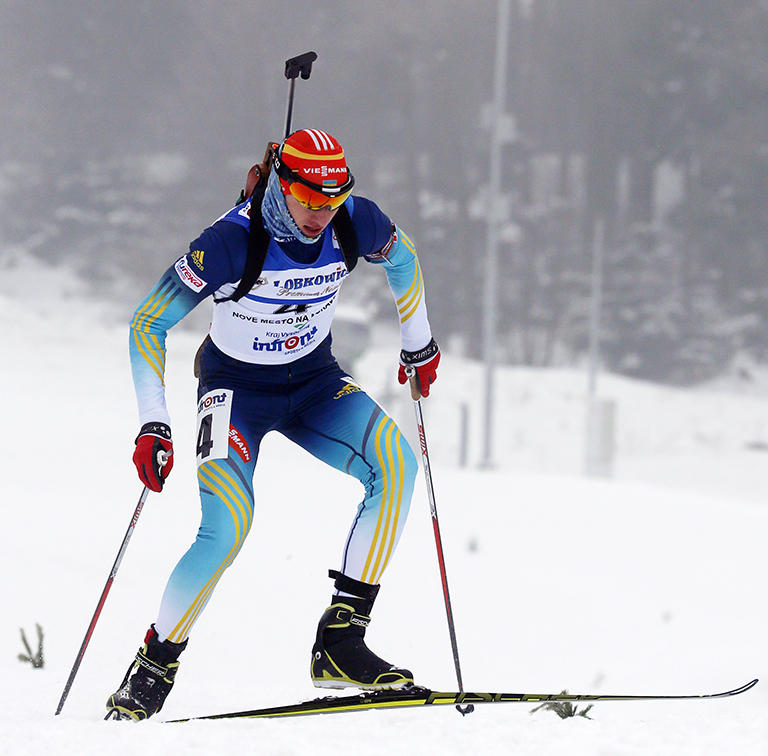
Ukrainian biathlete Artem Tyshchenko has been identified as the second athlete to test positive for mildronate, a hormone recently added to the World Anti-Doping Agency Prohibited List.
The 22-year-old has only a single World Cup start to his name this season, finishing 62nd in the sprint in Canmore, Alberta. He was more successful last year, placing tenth in the World Cup sprint in Oberhof, Germany, in January 2015.
And Tyshchenko has had a successful career at the junior level, earning two bronze medals at 2012 World Junior Championships in Kontiolahti, Finland, in 2012, and a silver and a bronze in the junior races at Open European Championships in 2014. He was also a medalist at summer biathlon World Championships.
Mildronate was originally developed to aid in growth in livestock, and has been used to enhance athletic performance in some sports for years. It was added to the WADA Prohibited list starting on January 1, 2016.
Tyshchenko’s urine sample was collected at an IBU Cup competition in Arber, Germany, on January 23. That same day Tyshchenko teamed up with Anastasiya Merkushyna to win the single mixed relay competition by 6.3 seconds over a the team from Kazakhstan.
Olga Abramova, also of Ukraine, was caught using the same drug earlier this season. Abramova said that she had been prescribed the drug for heart problems, and had stopped taking it three weeks before the ban went into effect.
Both athletes waived their right to have the ‘B’ sample opened. Their provisional suspensions are in effect until an Anti-Doping Hearing Panel is convened and decides on their cases.

Chelsea Little
Chelsea Little is FasterSkier's Editor-At-Large. A former racer at Ford Sayre, Dartmouth College and the Craftsbury Green Racing Project, she is a PhD candidate in aquatic ecology in the @Altermatt_lab at Eawag, the Swiss Federal Institute of Aquatic Science and Technology in Zurich, Switzerland. You can follow her on twitter @ChelskiLittle.



